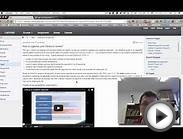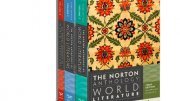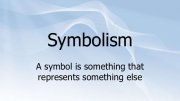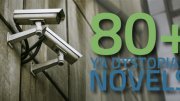The literature review is the thesis component which gives you the most scope to demonstrate your mad skills of scholarly warfare. Being able to write a killer literature review is important because it ‘sells’ your academic competence to examiners and other readers.
The literature review receives a lot of attention in the how-to-do-a-PhD books. The key point they all make is that the lit review must be more than a list of things you read – it has to have an argument and a point of view. There’s no shortage of good advice out there, such as this excellent list of ‘literature moves’ out of my favourite book on PhD writing, ‘Helping doctoral students to write’:
1) sketch out the nature of the field relevant to the inquiry – including history if relevant and
2) identity major debates and define terms, in order to
3) establish which studies, ideas and/or methods are most pertinent to your study, and
4) locate gaps in the field, in order to
5) create a warrant for the study in question, and
6) identify the contribution the study might make
 But there’s a gap between this kind of style advice and the actual mechanics of analysing and organising the raw material of your literature review. I’m talking about getting to grips with all those journal articles people. You have rather a lot of them don’t you? How are you going to ‘identity major debates’ and decide which are the ‘right’ studies to draw on in all that mess?
But there’s a gap between this kind of style advice and the actual mechanics of analysing and organising the raw material of your literature review. I’m talking about getting to grips with all those journal articles people. You have rather a lot of them don’t you? How are you going to ‘identity major debates’ and decide which are the ‘right’ studies to draw on in all that mess?
As I see it, there’s two basic techniques for developing a literature review from a given set of references. You must work at forming critical judgment on the literature by reading it, at the same time as you work on finding ‘patterns’ in the mess of information. It’s important to realise that these patterns are not ‘real’ – you make them by sorting and presenting the information in particular ways. This sorting process makes the raw information legible so that you can start to write an argument from it.
This is more than a filing problem. If you are anything like me you have a massive pile of journal articles on your desk. The neat freaks amongst you will have them all printed out and filed in alphabetized binders. Some of the more technical minded amongst you will probably be using something like Mendeley or even – ahem – Endnote . These tools help you find stuff when you want it, but they don’t do the intellectual heavy lifting for you.
Source: thesiswhisperer.com
You might also like:



Related posts:















 Part III of the Mathematical Tripos (officially Master of Mathematics/Master of Advanced Study) is a one year Masters-level taught course in mathematics offered at the Faculty of Mathematics, University of Cambridge currently taken by over 200 students each year...
Part III of the Mathematical Tripos (officially Master of Mathematics/Master of Advanced Study) is a one year Masters-level taught course in mathematics offered at the Faculty of Mathematics, University of Cambridge currently taken by over 200 students each year...








